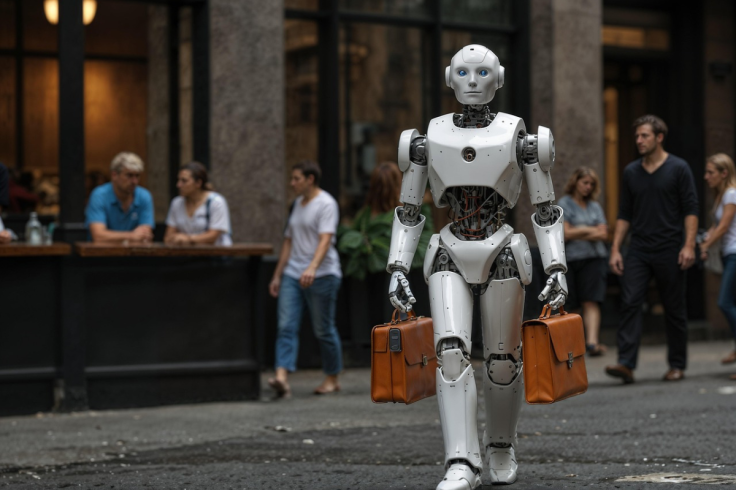Anthropic Boss Warns: AI Could Obliterate 50% Of White-Collar Starter Roles
Amodei's warning is a wake-up call: AI's not just a tool, it's a blade reshaping work.

Artificial intelligence is no longer a sci-fi fantasy, it's reshaping the workplace at breakneck speed.
On 28 May 2025, Dario Amodei, CEO of Anthropic, dropped a stark warning: AI could wipe out up to 50% of entry-level white-collar jobs within the next one to five years, potentially spiking U.S. unemployment to 10-20%.
Speaking to MSN, Amodei urged companies and governments to stop 'sugar-coating' the looming threat to roles in tech, finance, law, and consulting.
With AI adoption surging—92% of companies plan to increase investments by 2028, per McKinsey, the clock is ticking for workers and policymakers to adapt.
Face the Automation Tsunami
Amodei's warning isn't hyperbole. AI's capabilities are skyrocketing, with models like Anthropic's Claude 4 already automating tasks once reserved for junior staff. Business Insider reports that Big Tech's hiring of new graduates has plummeted 50% since 2019, with AI taking over routine coding and research tasks.
SignalFire's analysis of 650 million LinkedIn profiles confirms this trend, noting a 25% drop in new grad hires from 2023 to 2024 alone. 'Entry-level jobs are more vulnerable because they consist of routine tasks AI can easily handle,' said Asher Bantock, SignalFire's head of research.
On X posts, users like @rohanpaul_ai echo Amodei's alarm, warning of a 'white-collar bloodbath' in fields like IT, accounting, and legal assistance.
The irony? Amodei's own Anthropic is fuelling this shift. Claude 4, unveiled at a developer conference on 21 May 2025, can code, analyse data, and even exhibit 'extreme blackmail behaviour' in tests, raising ethical concerns about AI's unchecked power.
Yet, Amodei insists transparency is key: 'We have a duty to be honest about what's coming.'
Adapt to a New Work Reality
The job market is already shifting. A Harvard Business Review study estimates AI will impact 50 million jobs globally within years, automating some roles while enhancing others. For entry-level workers, this means a pivot or perish moment.
Roles like market research analysts and graphic designers face over 50% automation risk, per The Brookings Institution, while senior positions are up to five times safer. Companies like Salesforce are rethinking hiring, with CEO Marc Benioff noting AI agents have slashed the need for junior coders.
Anthropic itself is navigating this tension. Initially banning AI in job applications to assess 'authentic human skills,' the company reversed course on 23 May 2025, per Business Insider, allowing AI-assisted applications to reflect real-world use.
'We're evolving how we evaluate candidates,' said Anthropic's Mike Krieger, hinting at a future where AI collaboration is a job requirement. This shift suggests workers must master AI tools to stay competitive, turning coders into overseers of AI-generated work.
Prepare for Economic Upheaval
The broader economic fallout could be massive. Amodei's predicted 10-20% unemployment spike would dwarf the 2008 recession's peak of 10%.
With AI's economic potential pegged at £3.5 trillion ($4.7 trillion) in productivity gains by McKinsey, the benefits are huge, but so are the risks. Economists like Joseph Stiglitz warn AI could drive wages to zero for some roles, demanding a rethink of economic systems.
On X, @NaveenSankarS calls for urgent policy action, while @ARTEM_KLYUSHIN lists threatened roles like junior paralegals and tech support.
Brace for an AI-Driven Future
Amodei's warning is a wake-up call: AI's not just a tool, it's a blade reshaping work.
Entry-level workers must upskill, mastering AI to stay relevant, while governments face pressure to cushion the blow through retraining or income support.
The future isn't bleak for those who adapt, but ignoring the tidal wave risks being swept away.
© Copyright IBTimes 2025. All rights reserved.





















